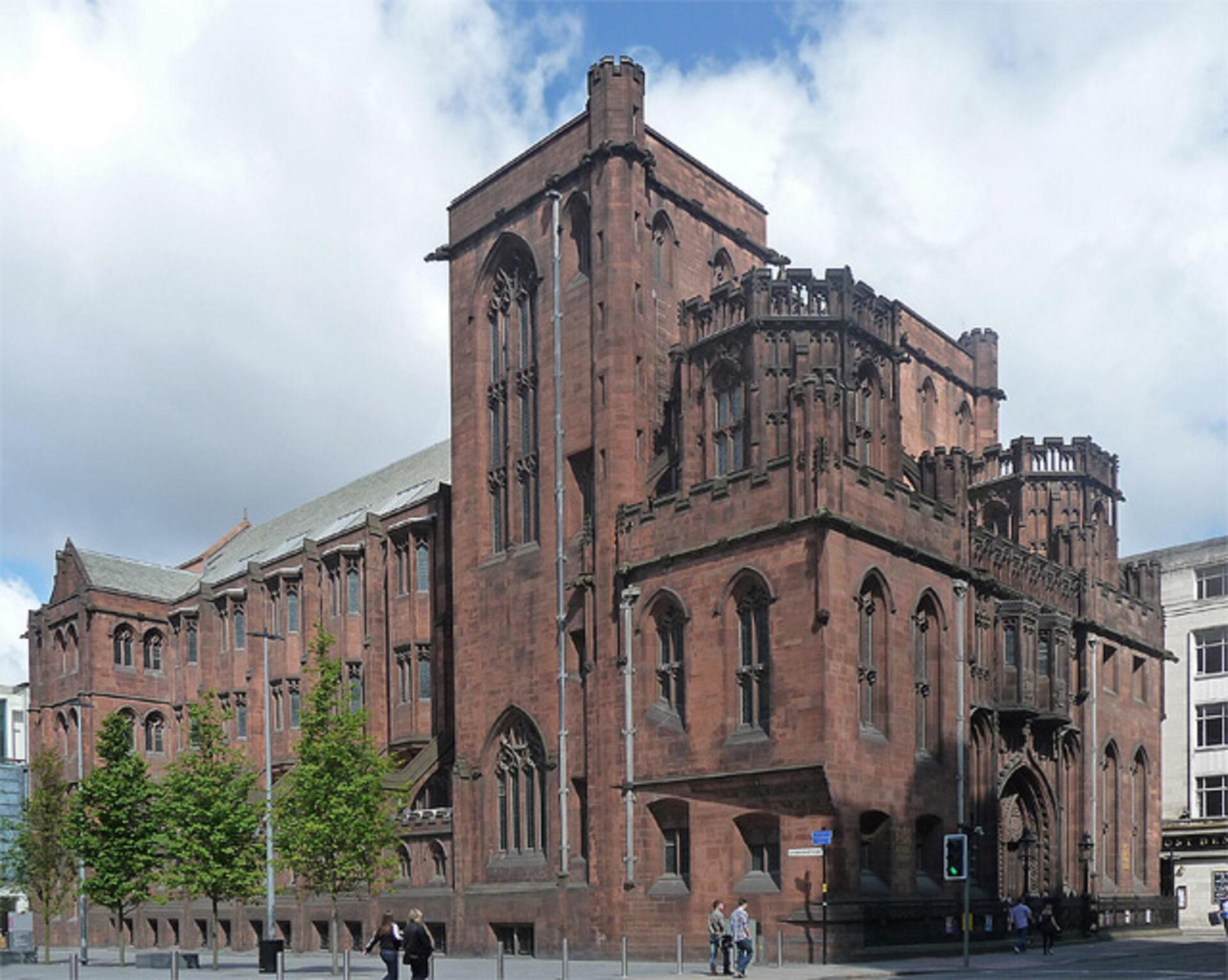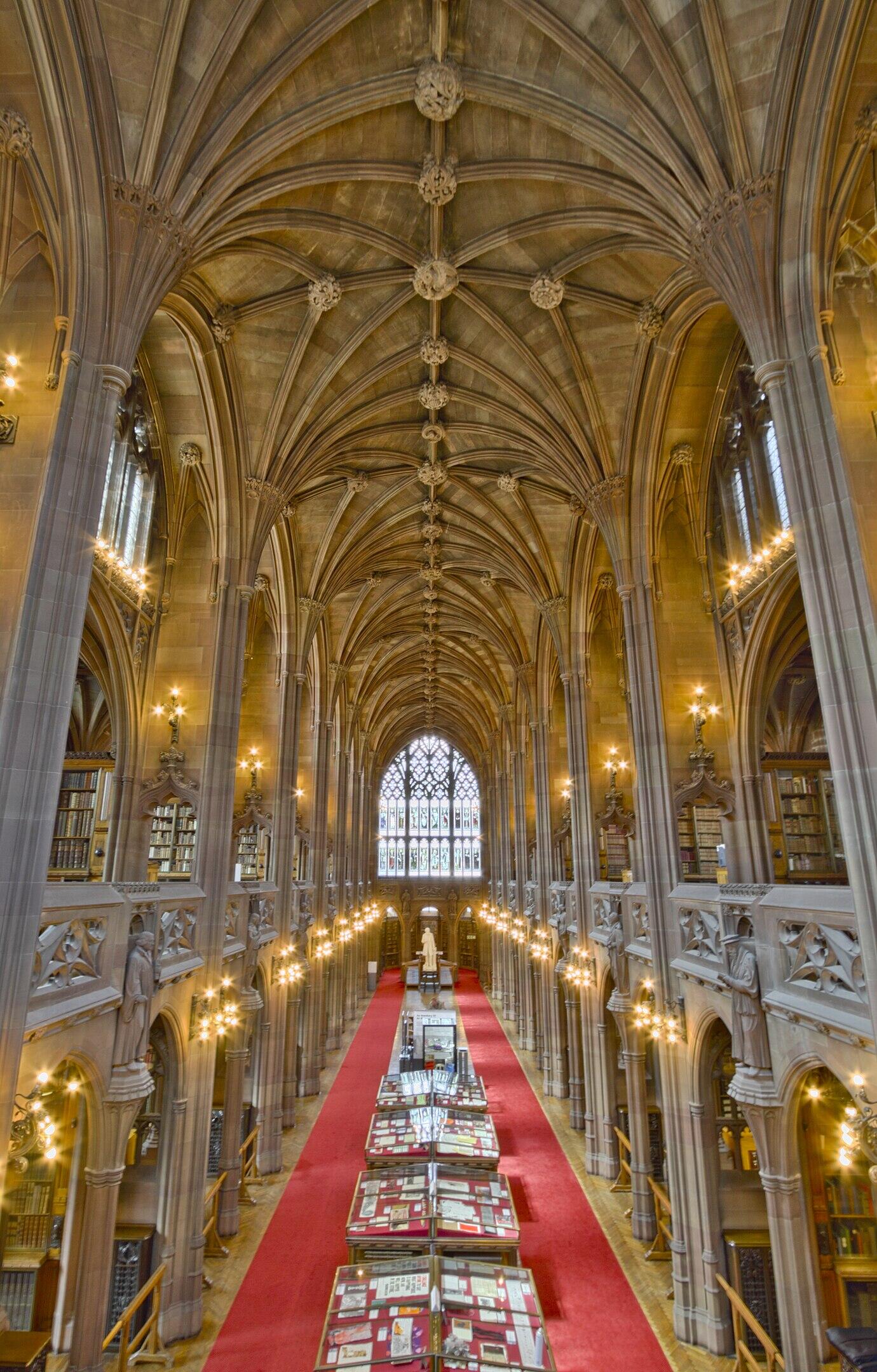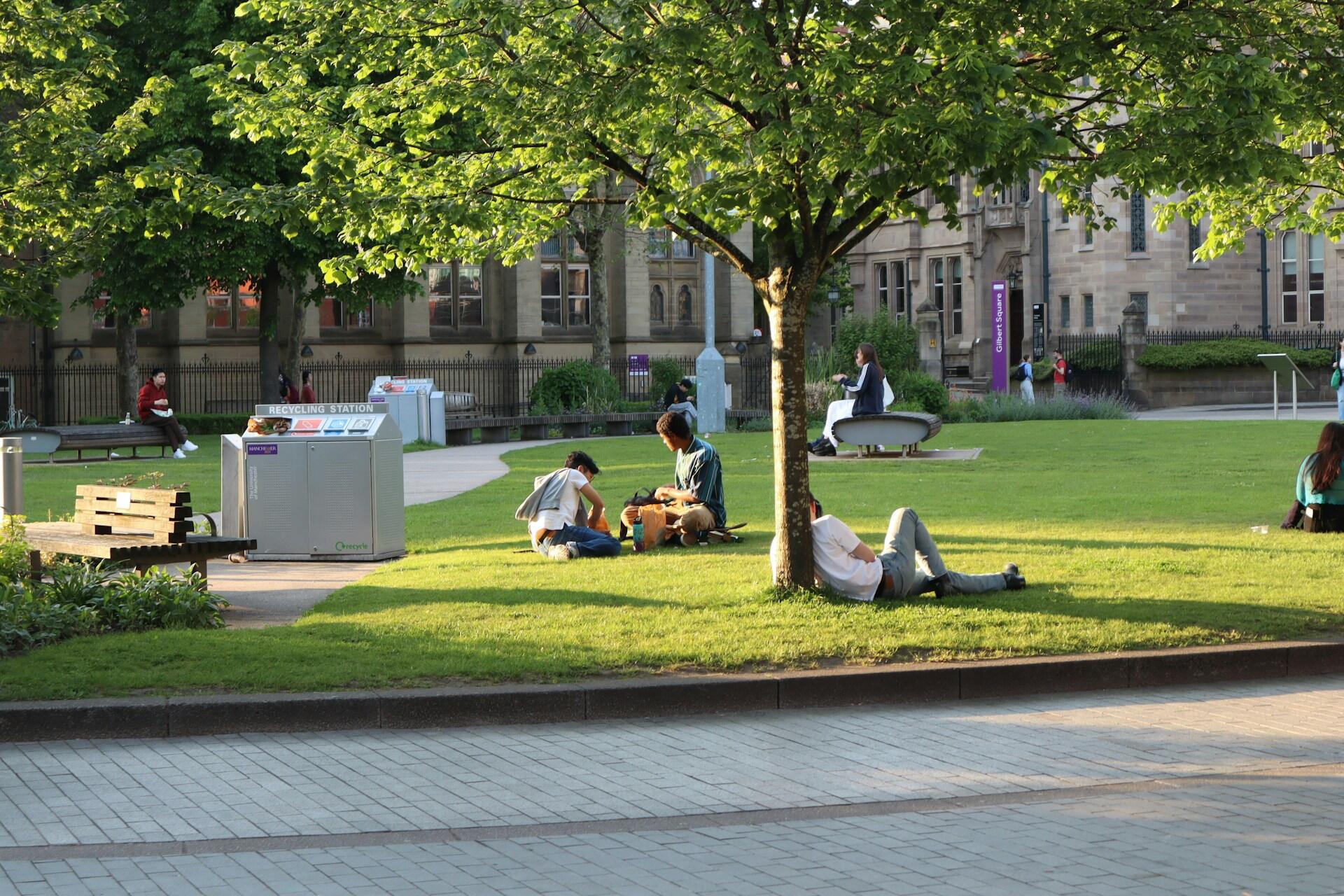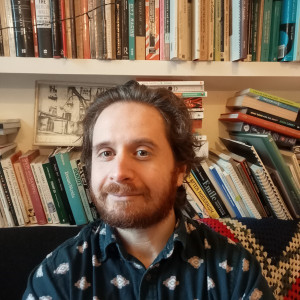This red-brick university has a well-deserved reputation for excellence in many disciplines, including English. Undergraduate students have 12 English Literature degree plans to choose from, three of which incorporate foreign language studies. This article lays out your options for studying English Literature at Manchester University. It also spells out application criteria and the programmes' particulars.
Manchester Uni English Lit at a Glance
- Total number of programmes available: 12
- Programme duration: 3 years; 4 years for some double degree programmes
- A-Level requirements: AAA; AAB for some double degree programmes
- Tuition: projected slightly higher than £9 535 (2026 entry fees not set); financial aid available

A Word About Manchester and Literature

Manchester has been a UNESCO City of Literature since 2017. To qualify for membership in this illustrious group, cities must have a fair number of bookshops and libraries, be involved in publishing, and boast a record of hosting literary events.
Manchester checks all those boxes and all the other qualifications UNESCO has set out:
- active promotion of literature
- raising awareness and creating markets for literary products
- literature and related arts, such as poetry and drama, must help shape the city's culture
- diversity, quality, and quantity of publishing endeavours across the city
- the quality and quantity of literature learning programmes at all levels, including university level
All this makes Manchester remarkable, but the last point serves students the best. It signals that Manchester is a top destination for literature studies as well as literary pursuits. In fact, this city hosts three major book festivals each year:
Children's Book Festival
- Features writers and teachers
- Galleries, theatres and museums are also involved
- An international event
The Festival of Libraries
- Activities at libraries across the city invite citizens to explore libraries and their services.
Manchester Literature Festival
- Showcases writings from around the world
- Invites aspiring writers to present their work
The latter festival promotes Manchester as a global literary hub and a centre for cultural exchange. No occasion demonstrates that better than Manchester's Radość Pisania (the Joy of Writing) event. This celebration is in collaboration with the Polish city of Krakow, with the British Council as a sponsor and guide.
Manchester's Polish poetry festival celebrates literature in Manchester’s dominant languages: English and Polish. The festival's name is the title of a poem by Nobel Prize laureate Wisława Szymborska.
You might read somewhere that Oxford and Cambridge are top schools for literature study in the UK; the rankings bear that out. Still, as a soon-to-be undergraduate of literature studies, the city of Manchester rolls out her red carpet for you. You only need to know which degree programme you wish to sign up for.
Manchester Uni English Lit Programmes
The University of Manchester single-degree offering will see you in and out of school within three years, so will most of its double-degree programmes. However, the literature-language programmes take four years to complete.
- English literature and Spanish - minimum A-Level: AAB subject-specific requirements a year of study abroad
- English literature and French - minimum A-Level: AAB subject-specific requirements a year of study abroad
- English literature and German - minimum A-Level: ABB Subject-specific requirements a year of study abroad
For each language, the extra year abroad helps flesh out what you learnt in the classroom. You'll immerse yourself in your chosen language and its culture. Besides them, you have one more opportunity to study abroad.
Manchester undergraduates have the chance to study American popular culture and politics through the Faculty of English. They may choose a three- or four-year programme, with a semester in an American school.
The University of Manchester's American Studies degree plans take three to four years to complete. Literature does not feature in the syllabus; instead, you'll study that country's history, policies, and global impacts. A third offering, English Literature and American Studies, blends the two single-degree course materials. The fourth comprises History and American Studies.
With languages and American Studies explained, we have four dual-degree programmes left to discover:
- English Literature with History
- Drama and English Literature
- English Literature and Art History
- English Literature and Creative Writing
The diversity of offerings at the University of Manchester proves this school is one of the best for English Literature studies. The degree plans' flexibility allows you to explore other subjects that fit well with the Literature curriculum. You only need to beware that some dual-degree programmes have course-specific entry requirements.
Literature Study Programmes Admission Requirements
Besides those with a language component, the Manchester Uni English Lit dual-degree programme admission requirements are pretty uniform.
| 📜Degree plan | 📊A-Level minimums | 📈Contextual offer | 📚Prior studies |
|---|---|---|---|
| English literature with English Language | AAB | ABB | English Literature or English Language and Literature |
| English literature with Drama | AAB | ABC | English Literature or English Language and Literature |
| English literature with Creative Writing | AAA | ABB | English Literature or English Language and Literature |
| English literature with Art History | AAA | ABB | English Literature or English Language and Literature |
| English literature with History | A*AA | AAB | History and English Literature or English Language and Literature |
Across the board, the A-grade requirement must be in English Literature or English Language and Literature. Furthermore, the faculty specifies that no more than three A-Levels will be considered. If you'd planned on sitting more than three exams, you're welcome to do so, but it won't boost your chances of acceptance.
What Is Manchester Uni's English Department Like?
English and American Studies fall under the Faculty of Humanities' jurisdiction. Research institutes thrive under this department's direction, from the Centre for New Writing to the Humanitarian and Conflict Response Institute. Students have the chance to get involved in many social projects, including environmental initiatives.
The faculty hosts many events, ranging from seminars and guest lectures to concerts and drama performances. Across campus, the drive is to foster a sense of social responsibility and a push towards academic excellence.

We find this spirit at top universities in London and around the country. For Manchester University, these mentors personified that spirit.
Famous Manchester English Lit Alumni
Sir Martin Amis taught Creative Writing at the University of Manchester from 2007 to 2011. He was a vibrant presence on campus, often holding public discussions with other literature experts on topics ranging from sex to politics. Naturally, literature was a frequent area of debate, particularly 21st-century literature.
Adding to his long list of awards, Colm was shortlisted for many other literary prizes, several times for the Booker Prize. He remains an active presence in literary circles, as well as on the lecture circuit.
Dame Winterson grew up in unusual circumstances. She left home at 16, giving up on the idea of becoming a missionary, a role she had trained her whole life for. We can still hear sermonic undertones in her writing; it's both commanding and terrifying. She remains a compelling presence on campus and a major draw to the university's literature department.
Other distinguished names with a connection to the University of Manchester English department include W. B. Anderson, who also studied English at the Scottish University of Aberdeen. This list goes on:
- Sir Malcolm Bradbury: author
- Alison Sharrock: Classics professor
- M. J. Hyland: novelist; creative writing professor
- C. B. Cox: poet; founded the Creative Writing Centre
- Terry Eagleton: teacher; literary theorist
- Patricia Duncker: Contemporary Literature professor and novelist
- Grevel Lindop: literary critic, poet, and academic
- W. G. Sebald: author
Applying to BA English Literature Courses

Earning your English Literature degree from the University of Manchester starts with launching your UCAS account. As your teacher and parents likely already informed you, all undergraduate access to higher learning starts on that platform.
As soon as you establish your account, start gathering your documents. You'll need your GCSE results, any information you have about your A-Level studies, and personal data, too. You'll also need to write a personal statement about why you wish to study English Literature at the University of Manchester.
These are general instructions that roughly apply to every undergraduate applicant. But students come from all educational backgrounds. This university provides these guidelines for students from all avenues.
| 👨🎓Student type | 🚪Pathway |
|---|---|
| Non-traditional Homeschooled Vocational | Apply through UCAS Submit references from an official who knows you. Applications considered on an individual basis. Contact an admissions tutor for specific advice. |
| Mature students | Must have been in education in the past 5 years. Invitation to submit written work. Experience will be considered. Interview, if needed. |
| International students | Minimum IB score: 36 Minimum 6-6-6 in English Literature or English Language and Literature. Proof of English language: IELTS 7 or higher; with 6.5 in every sub-test Application considered on individual basis. |
| Deferred entry | Same consideration as current-year applicants. Deferral requests must be made as soon as possible. |
| Resits | The same consideration as standard applications. Additional documentation may be required. |
| Re-application | Will receive the same consideration as current applicants. Must demonstrate improvements over prior application. |
| Transfers | Generally not accepted. |
The University of Manchester aims to allow the broadest access to higher learning for students of all abilities, circumstances, and backgrounds. Should you not see yourself reflected in any of these roles, you can contact the school's admissions office to ask what the process is for your circumstances.
Before you make your university choices, check out what other universities have to offer.
For instance, the English programmes at Durham University offer students a broad selection of elective courses that enrich their learning experience. The University of Manchester is a great school within a City of Literature; the perfect destination for literature studies.
Summarise with AI:















